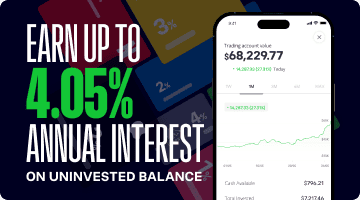Breaking the Comparison Trap: Jessie Leong on Why Your Financial Journey Is Never "Apples to Apples"
For writer and How I Fund This founder Jessie Leong, the hardest step wasn't learning the jargon,...
Will 2025 Finish with a Santa Rally?
It has been a challenging few weeks in the markets for investors. From a major tech sell-off to...
“Seeing is Believing”: Tolu Frimpong on Her Journey From £36,000 in Debt to Empowered Investor
For financial educator and mother of four Tolu Frimpong, the mission is personal. After facing...
Changing the Perception of Investing: Meet Mia McGrath, the 24-Year-Old Demystifying Finance on TikTok
She used to spend her days in the fast-paced world of fashion sales, but her true passion is...
Is financial services’ obsession with ‘confidence gap’ putting women off investing?
The financial industry has long pushed a lazy myth: that women don't invest because they "lack...
Elevate your investing – and your lifestyle – with eToro Club UAE
From expert service to premium perks, eToro Club membership is designed to help you invest smarter...
Luxury boom drives record highs in UAE real estate market
The UAE’s real estate market continues to set new records in 2025. In April alone, AED 62.1 billion...
UK Stocks in Focus: Top 5 Picks To Watch
The UK economy of 2025 stands at a critical crossroads. While recent trade arrangements with the US...
The gentle path to financial freedom every Italian might consider
Whether it’s a dream car, a lavish honeymoon, or a wedding fit for Netflix, many Italians are...
Recurring Investments: A simpler way to help grow your portfolio
Ever wish you could set your investments on autopilot? eToro’s new Recurring Investments feature...



